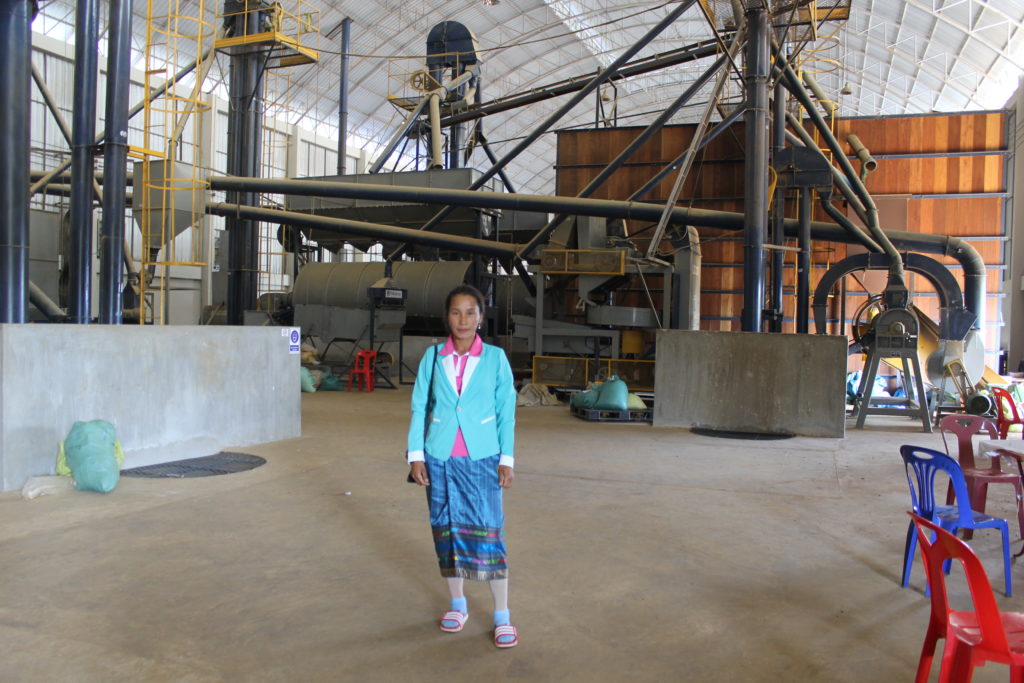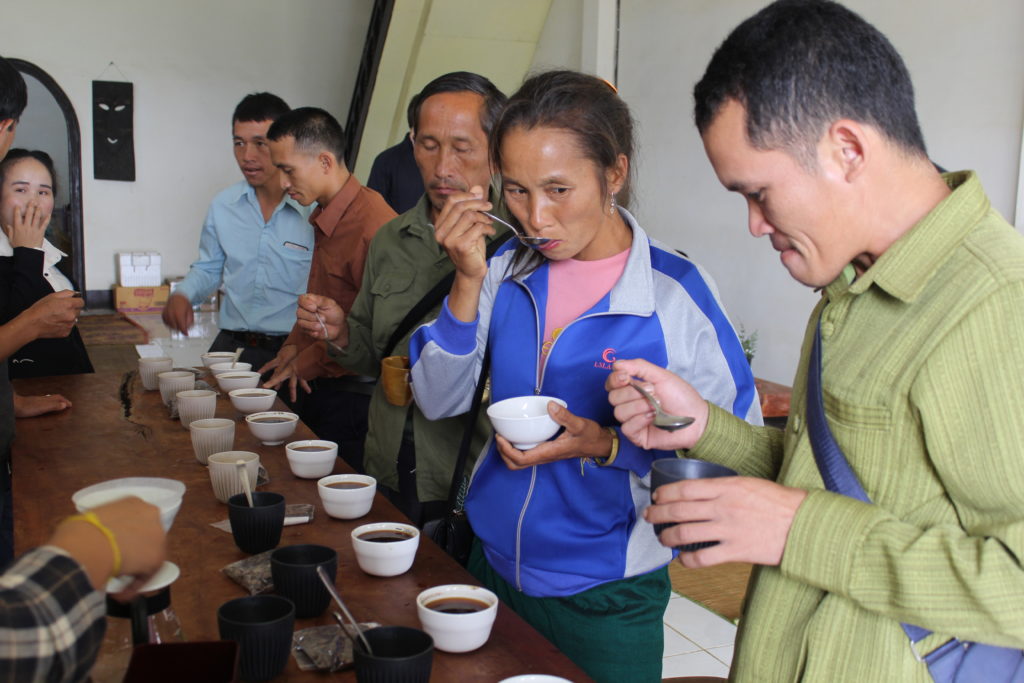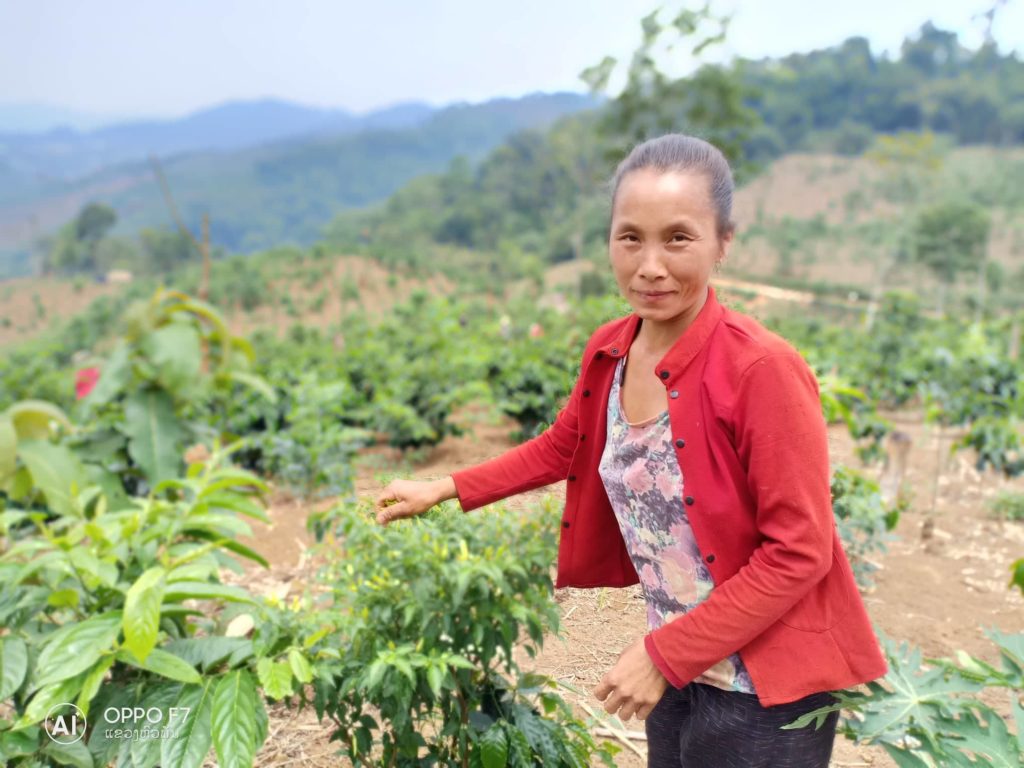Testimonies from Our Farmers
Read more about how growing coffee is changing these farmers’ lives
“Before we did not grow coffee and a longtime ago, we used to grow opium. However, since this project began supporting us to grow coffee, we are able to see that the result of growing coffee is better than other crops like maize, etc.,”
“From now on, the main crop we will consider as our source of income is coffee. After three years of harvesting coffee, we have received better and higher family income.”
“Before our family used to be poor and used to grow opium. However, after the Alternative Development project began, we began growing coffee. Since growing coffee, I have been able to earn more income, and buy more materials not only for farming but also for serving the needs of my family.
I believe coffee can help improve the livelihood of my family.
We have no other options that can compete with the income we get from farming and growing coffee.”
“Coffee farming has helped us become debt free, improve our livelihoods, and earn greater incomes to buy what we need. Some coffee farmers can use the income from coffee selling to send their children to school far away, to pay for claiming land for paddy production, buy medicine when they get sick, buy electric fans, refrigerators, washing machines, motorcycles, tractors, trucks, etc., and also save money to put in the bank.”
“Now that I grow coffee, I am very happy. The generation before me would do opium poppy cultivation and sometimes family members would get addicted to opium because of this. Now the government and international community has helped our village by giving us the option to grow coffee. Even coffee is new to us, we have never seen what it looked like before, but we appreciate the support it has given to our lives immensely.”
“Through this project, I am able to send my children to school and buy other necessary things for an improved life.
Some families did not have the chance to send their children to school due to poverty but now thanks to this project, their children have the chance to go to school.”
“We used to farm other crops but learned from others that growing coffee generates greater income and can be harvested for many years.
There is regular support from the UNODC staff and the project makes us feel confident in out abilities to successfully grow coffee.”
“Before, many families would have to borrow money from the bank for medication for illness, or to send their children to school. This would leave them indebted to banks or other people. However, now through growing coffee, we are able to afford these things through the income we earn and solve these problems of daily life.”
“Through this project, I can see more women involved in the coffee plantations and in farming coffee. Also, whenever we have meetings, training, or workshops, women are increasingly participating. This is helping improve the gender balance in our village. More importantly, by participating in this coffee cultivation, women are also able to participate in decision-making in the family.
I believe that this project can help improve gender-balance in our community as long as we keep receiving further training, workshops that are beneficial since women have limited knowledge.”
- 1.
- 2.
- 3.

I have never travelled so far outside my village as I have this past week when I visited Pakse to study coffee. The journey took three days, but the long car ride couldn’t stop my excitement to be selected as the representative from Phalem village to take part in this study tour. It is special for a woman to get to travel without her husband in Laos so for me it was great to join the trip to take time to learn about coffee. Although I missed my family a lot, with my cell phone it’s easy to talk to them every day. For me, it is also the first time where I got to travel by myself and not have to deal with any home responsibilities. I’ve never had time to myself like this because I got married so young.

My husband and I were so in love that we got married as soon as he returned to our village after completing secondary school. This was despite my parents wanting us to wait until I finished my education. I was only 15 years old. I hope that our kids will be able to get more education than I did because now I realize that it is better so that they can have more opportunities in life. That is one reason that my husband was so supportive of me travelling to Pakse because he knows that when I bring back knowledge from the south, this will help improve our coffee and our future.

Since arriving in Pakse I have learned so much about coffee that I never knew before. I am very impressed with what I’ve seen in the warehouse. I’m so happy that the coffee industry in Pakse is doing well and that the farmers there are happy to farm coffee. The warehouse is so large and successful but it also made me aware of how much work it takes to make high quality coffee. Luckily for the farmers, high quality translates into a high income and this is something we can learn from and follow in our villages. The farmers taught us all how to sort coffee beans and I got to know what the difference both in appearance and taste between good and bad beans. When we went to the cupping at the café, I learned what makes each different coffee from around the world have a unique flavor and taste. I didn’t know that there were so many different types of coffee. Although I don’t like the flavor of coffee myself, I got to compare tastes like sweet, sour and bitter coffee and this helped to teach me about what makes quality coffee. This trip has motivated me to work hard to improve our coffee so that we can get the highest prices possible.

